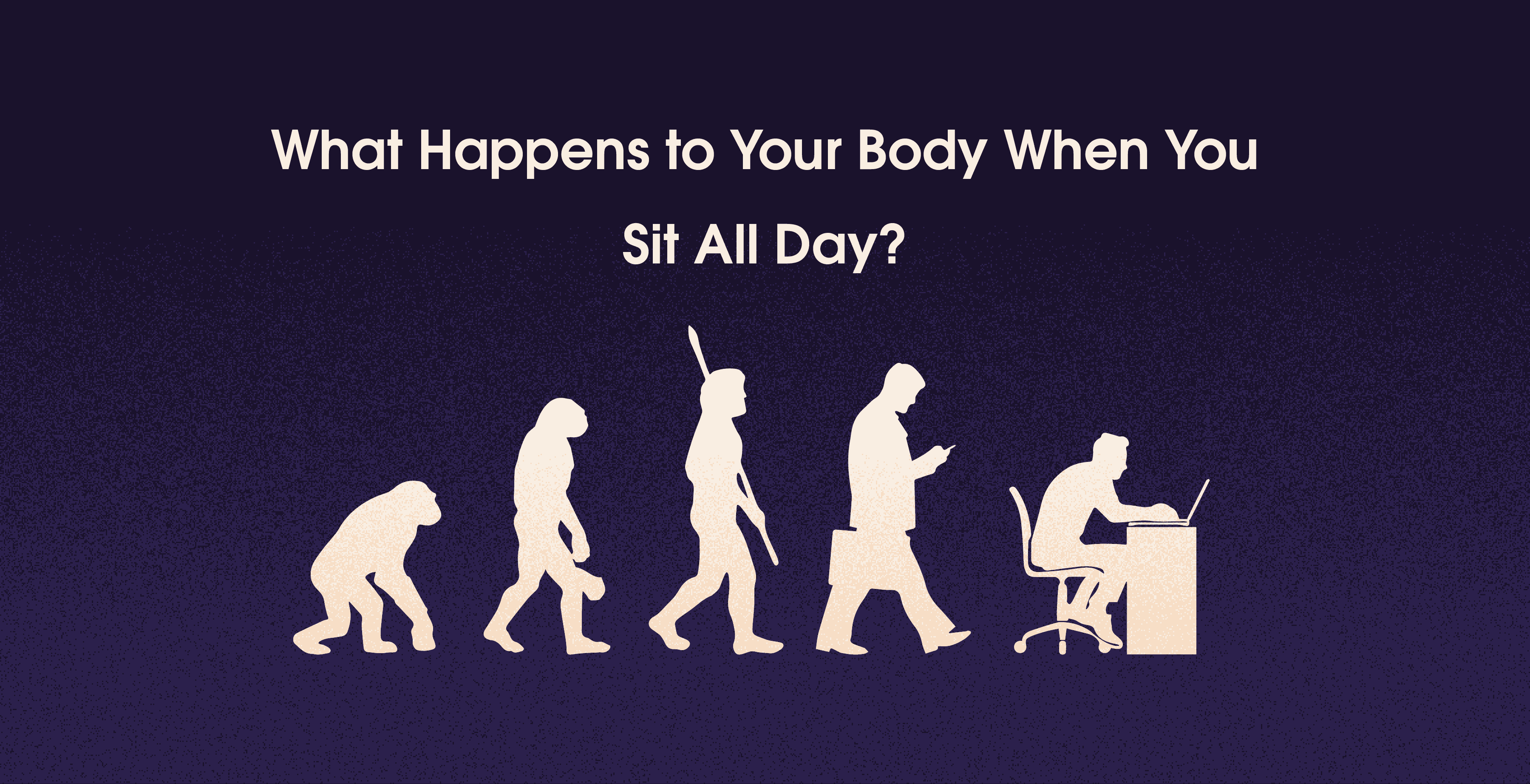Why Men Ignore Their Health (And How to Change That)
Table Of Contents
Let’s get something straight—most men treat their health like an afterthought. It’s always tomorrow, next week, I’ll get to it when I have time. Until, of course, their body forces them to pay attention. A nagging pain turns into a serious injury. A little fatigue morphs into full-blown exhaustion. And that small health scare? Suddenly, it’s the only thing on their mind.
So why do men put off taking care of themselves? It’s not that they don’t want to be healthy—nobody wakes up thinking, Let’s see how much I can neglect my well-being today! But there’s a deeply ingrained habit of shrugging off health concerns, as if admitting something’s wrong is the same as being weak.
The problem? Ignoring your health doesn’t make you invincible. It just makes you reckless. And sooner or later, your body will make you pay for it.
Highlights
Men often push health concerns aside, thinking they can power through issues rather than addressing them head-on.
Many were raised with the idea that showing vulnerability, including acknowledging health problems, is a sign of weakness.
Fear of bad news keeps some men from seeing a doctor, as if avoiding a diagnosis will make the problem disappear.
Busy schedules create the illusion that there’s no time for health checkups, but neglecting health now often leads to bigger problems later.
The rise of online self-diagnosis has led many men to trust Google over trained medical professionals, which can be misleading or dangerous.
Strength isn’t about ignoring pain or symptoms—it’s about taking responsibility for one’s well-being.
Annual checkups and preventative care should be treated like car maintenance—routine and non-negotiable.
The body constantly sends signals; ignoring persistent fatigue, pain, or other symptoms can make small issues spiral into major ones.
Talking about health shouldn’t feel taboo; normalizing conversations among men can encourage proactive care.
Small, sustainable habits—drinking more water, moving daily, sleeping well, and eating better—can have a lasting impact.
Health isn’t something to put off; neglect now leads to regrets later when the body finally demands attention.
Why Men Downplay Their Health (Even When They Shouldn’t)
There’s no single reason why men avoid checkups, delay doctor visits, or pretend they’re fine when they’re clearly not. It’s a mix of social conditioning, fear, and sheer stubbornness. Let’s break it down.
The “Tough Guy” Mindset
Since childhood, most men have been fed the same message: Be strong. Shake it off. Don’t be soft. Vulnerability? That’s for other people. Pain? Walk it off. The idea that real strength means pushing through discomfort—even when it’s completely unnecessary—sticks with them into adulthood.
The result? They ignore symptoms, skip checkups, and power through when they should probably be resting. But here’s the truth—real strength isn’t about pretending nothing’s wrong. It’s about taking responsibility. And that includes looking after your own damn body.
Fear of Bad News
Let’s be honest—nobody likes hearing that something’s wrong. But for a lot of men, the thought of sitting in a doctor’s office and getting hit with bad news is worse than not knowing at all. It’s almost like a twisted game: If I don’t get checked, then there’s nothing to worry about, right?
Except that’s not how health works. Problems don’t magically disappear just because you ignore them. And waiting until things really go south doesn’t just limit your options—it makes everything harder to fix.
“I Don’t Have Time” Syndrome
Between work, family, and whatever other responsibilities pile up, health often gets pushed to the back burner. There’s always something more urgent, something that feels like it needs attention right now. But here’s the catch—your health is the foundation of everything else.
If you don’t take care of yourself, eventually, you won’t be able to take care of anything else. That deadline won’t matter when you’re too sick to work. That meeting won’t happen if you’re lying in a hospital bed. Health isn’t a luxury—it’s a necessity.
The Misinformation Trap
These days, it’s easier than ever to self-diagnose with a few Google searches and some sketchy Reddit advice. Instead of seeing a doctor, a lot of men try to “figure it out” on their own.
The problem? The internet is a minefield of conflicting health advice. One site tells you a symptom is harmless, another convinces you it’s life-threatening, and somewhere in between, you’ve managed to stress yourself out without actually solving anything.
Getting real, professional advice is always better than playing internet detective with your own health.
How to Change the Script (Without Overhauling Your Life)
If you’ve spent years putting your health on the back burner, changing that mindset isn’t going to happen overnight. But the good news? You don’t have to transform into some super-disciplined health guru to start making smarter choices.
Redefine Strength
Strength isn’t about gritting your teeth and suffering in silence. It’s about taking control. And that means facing health issues head-on instead of pretending they don’t exist.
Going to a doctor when something feels off? That’s strength. Prioritizing checkups? Strength. Taking care of yourself so you can be there for the people who rely on you? That’s real strength.
Treat Your Body Like Your Car
Think about how guys handle car maintenance. When the check-engine light comes on, they don’t just ignore it and hope for the best (okay, some do, but it never ends well). They get it checked, change the oil, and make sure everything’s running smoothly.
So why not treat your body the same way? Schedule an annual checkup like it’s routine maintenance. Get screenings before something goes wrong, not after. Preventative care exists for a reason—use it.
Start Listening to Your Body
Your body talks to you. That constant exhaustion? That’s not just “normal.” That random pain that won’t go away? It’s not just something to “push through.” Your body sends signals, and ignoring them won’t make them go away—it’ll just make things worse down the road.
If something doesn’t feel right, don’t wait until it’s unbearable to do something about it. Get checked, get answers, and deal with it early while you still have options.
Talk About It (Yeah, Seriously)
Health isn’t just a “women’s thing.” But somewhere along the way, men stopped talking about it—like acknowledging they have bodies that need care is somehow embarrassing.
It’s not. And the more men actually talk about their health—whether it’s mental, physical, or anything in between—the easier it becomes for everyone to take it seriously.
Encourage your friends to get checkups. Share your own experiences. Normalize taking care of yourself. The more we talk about it, the less of a stigma there is.
Make Small Changes That Actually Stick
You don’t need to suddenly become the healthiest person alive overnight. The key is starting small—and actually sticking with it.
Drink more water. (Seriously, most guys don’t drink enough.)
Move your body. (Doesn’t have to be the gym—just move.)
Sleep like an adult. (Not four hours and a gallon of coffee.)
Cut down on the junk. (You don’t have to quit—just don’t overdo it.)
Health isn’t about perfection. It’s about being just a little better than you were yesterday.
The Bottom Line
Ignoring your health will catch up with you. It might not be today, or next week, but eventually, the body keeps score. And when that happens, you don’t want to be sitting there wishing you had done something sooner.
Taking care of yourself isn’t a luxury. It’s not selfish. It’s not something to put off until you “have time.” It’s the foundation for everything—your energy, your strength, your future.
So, do yourself a favor: stop making excuses, book that appointment, and start treating your body like it actually matters. Because it does. And if you don’t take care of it, no one else can do it for you.
References
Let’s get something straight—most men treat their health like an afterthought. It’s always tomorrow, next week, I’ll get to it when I have time. Until, of course, their body forces them to pay attention. A nagging pain turns into a serious injury. A little fatigue morphs into full-blown exhaustion. And that small health scare? Suddenly, it’s the only thing on their mind.
So why do men put off taking care of themselves? It’s not that they don’t want to be healthy—nobody wakes up thinking, Let’s see how much I can neglect my well-being today! But there’s a deeply ingrained habit of shrugging off health concerns, as if admitting something’s wrong is the same as being weak.
The problem? Ignoring your health doesn’t make you invincible. It just makes you reckless. And sooner or later, your body will make you pay for it.
Highlights
Men often push health concerns aside, thinking they can power through issues rather than addressing them head-on.
Many were raised with the idea that showing vulnerability, including acknowledging health problems, is a sign of weakness.
Fear of bad news keeps some men from seeing a doctor, as if avoiding a diagnosis will make the problem disappear.
Busy schedules create the illusion that there’s no time for health checkups, but neglecting health now often leads to bigger problems later.
The rise of online self-diagnosis has led many men to trust Google over trained medical professionals, which can be misleading or dangerous.
Strength isn’t about ignoring pain or symptoms—it’s about taking responsibility for one’s well-being.
Annual checkups and preventative care should be treated like car maintenance—routine and non-negotiable.
The body constantly sends signals; ignoring persistent fatigue, pain, or other symptoms can make small issues spiral into major ones.
Talking about health shouldn’t feel taboo; normalizing conversations among men can encourage proactive care.
Small, sustainable habits—drinking more water, moving daily, sleeping well, and eating better—can have a lasting impact.
Health isn’t something to put off; neglect now leads to regrets later when the body finally demands attention.
Why Men Downplay Their Health (Even When They Shouldn’t)
There’s no single reason why men avoid checkups, delay doctor visits, or pretend they’re fine when they’re clearly not. It’s a mix of social conditioning, fear, and sheer stubbornness. Let’s break it down.
The “Tough Guy” Mindset
Since childhood, most men have been fed the same message: Be strong. Shake it off. Don’t be soft. Vulnerability? That’s for other people. Pain? Walk it off. The idea that real strength means pushing through discomfort—even when it’s completely unnecessary—sticks with them into adulthood.
The result? They ignore symptoms, skip checkups, and power through when they should probably be resting. But here’s the truth—real strength isn’t about pretending nothing’s wrong. It’s about taking responsibility. And that includes looking after your own damn body.
Fear of Bad News
Let’s be honest—nobody likes hearing that something’s wrong. But for a lot of men, the thought of sitting in a doctor’s office and getting hit with bad news is worse than not knowing at all. It’s almost like a twisted game: If I don’t get checked, then there’s nothing to worry about, right?
Except that’s not how health works. Problems don’t magically disappear just because you ignore them. And waiting until things really go south doesn’t just limit your options—it makes everything harder to fix.
“I Don’t Have Time” Syndrome
Between work, family, and whatever other responsibilities pile up, health often gets pushed to the back burner. There’s always something more urgent, something that feels like it needs attention right now. But here’s the catch—your health is the foundation of everything else.
If you don’t take care of yourself, eventually, you won’t be able to take care of anything else. That deadline won’t matter when you’re too sick to work. That meeting won’t happen if you’re lying in a hospital bed. Health isn’t a luxury—it’s a necessity.
The Misinformation Trap
These days, it’s easier than ever to self-diagnose with a few Google searches and some sketchy Reddit advice. Instead of seeing a doctor, a lot of men try to “figure it out” on their own.
The problem? The internet is a minefield of conflicting health advice. One site tells you a symptom is harmless, another convinces you it’s life-threatening, and somewhere in between, you’ve managed to stress yourself out without actually solving anything.
Getting real, professional advice is always better than playing internet detective with your own health.
How to Change the Script (Without Overhauling Your Life)
If you’ve spent years putting your health on the back burner, changing that mindset isn’t going to happen overnight. But the good news? You don’t have to transform into some super-disciplined health guru to start making smarter choices.
Redefine Strength
Strength isn’t about gritting your teeth and suffering in silence. It’s about taking control. And that means facing health issues head-on instead of pretending they don’t exist.
Going to a doctor when something feels off? That’s strength. Prioritizing checkups? Strength. Taking care of yourself so you can be there for the people who rely on you? That’s real strength.
Treat Your Body Like Your Car
Think about how guys handle car maintenance. When the check-engine light comes on, they don’t just ignore it and hope for the best (okay, some do, but it never ends well). They get it checked, change the oil, and make sure everything’s running smoothly.
So why not treat your body the same way? Schedule an annual checkup like it’s routine maintenance. Get screenings before something goes wrong, not after. Preventative care exists for a reason—use it.
Start Listening to Your Body
Your body talks to you. That constant exhaustion? That’s not just “normal.” That random pain that won’t go away? It’s not just something to “push through.” Your body sends signals, and ignoring them won’t make them go away—it’ll just make things worse down the road.
If something doesn’t feel right, don’t wait until it’s unbearable to do something about it. Get checked, get answers, and deal with it early while you still have options.
Talk About It (Yeah, Seriously)
Health isn’t just a “women’s thing.” But somewhere along the way, men stopped talking about it—like acknowledging they have bodies that need care is somehow embarrassing.
It’s not. And the more men actually talk about their health—whether it’s mental, physical, or anything in between—the easier it becomes for everyone to take it seriously.
Encourage your friends to get checkups. Share your own experiences. Normalize taking care of yourself. The more we talk about it, the less of a stigma there is.
Make Small Changes That Actually Stick
You don’t need to suddenly become the healthiest person alive overnight. The key is starting small—and actually sticking with it.
Drink more water. (Seriously, most guys don’t drink enough.)
Move your body. (Doesn’t have to be the gym—just move.)
Sleep like an adult. (Not four hours and a gallon of coffee.)
Cut down on the junk. (You don’t have to quit—just don’t overdo it.)
Health isn’t about perfection. It’s about being just a little better than you were yesterday.
The Bottom Line
Ignoring your health will catch up with you. It might not be today, or next week, but eventually, the body keeps score. And when that happens, you don’t want to be sitting there wishing you had done something sooner.
Taking care of yourself isn’t a luxury. It’s not selfish. It’s not something to put off until you “have time.” It’s the foundation for everything—your energy, your strength, your future.
So, do yourself a favor: stop making excuses, book that appointment, and start treating your body like it actually matters. Because it does. And if you don’t take care of it, no one else can do it for you.
References
Table Of Contents
Table Of Contents
Table Of Contents
Read More


Mar 5, 2025
Sayfali Rawlani


Dec 27, 2024
Sayfali Rawlani


Sep 30, 2024
Aparna Hurtis



Copyright © 2025 trst health. All right reserved.


